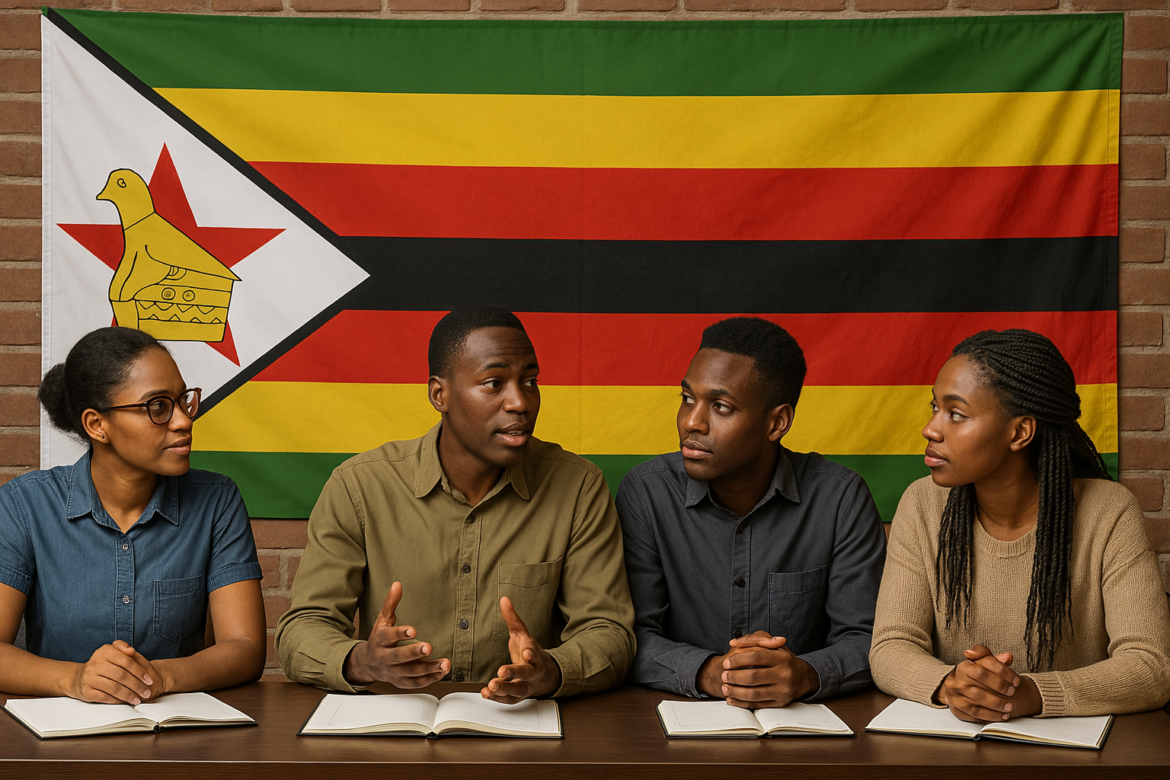Kwame Nkrumah alluded that we ought to seek the political kingdom and the rest will follow. By this he meant that African nations need to prioritize gaining political independence and self governance first, as he believed that once Africans controlled their own political destinies, economic development, social progress and cultural renaissance would naturally follow from this foundation of sovereignty. But was he right? More importantly, why should one be concerned? One of the elders in my class would always vigorously repeat that it is a waste of energy. I beg to differ. I have witnessed the transformative power of student leadership in bridging Zimbabwe’s political divisions. They are seeking the political kingdom so that the rest will follow. Just like in Ayittey’s speech on Hippo vs Cheetah generation, today’s generation of student leaders is pioneering new approaches to political dialogue that is the new hope for our nation’s future.
The political landscape in Zimbabwe has historically been characterized by deep polarization, particularly within academic institutions. This history is still present from Zambezi to Limpopo. However, there has been a significant change, though the exact nature and direction of this change has not entirely been straightforward in student political engagement over the past years. Student-led initiatives have achieved an immense increase in cross-party dialogue participation on different platforms, marking a departure from the confrontational politics of the past.
Students and student leaders have conducted studies on civic engagement, gaining valuable insights into political dialogue strategies. In turn, they have applied their findings on effective methods of fostering constructive political conversations across different backgrounds to political discussions in the country. By implementing targeted dialogue programs, they create spaces for meaningful intergenerational discussions.
The methodology behind successful student-led dialogue initiatives is grounded in what renowned scholars term “collaborative engagement.” This point of view in politics emphasizes finding the common ground rather than highlighting differences. Roundtable discussions have been an important brick in building alternative solutions. As President Mnangangwa would say, “brick by brick”, hence students are a crucial part of this foundation. Student leaders from various political affiliations discuss campus issues without party affiliations taking centre stage. These discussions have often led to unanimous agreements on student welfare issues, demonstrating that common ground exists even in this polarized environment. The impact of these initiatives extends beyond campus boundaries to local community politics and the national level.
Digital platforms have also been contributing to this movement. The telecommunications landscape across the country exhibits marked disparities, with certain regions benefiting from robust network infrastructure while others contend with technological limitations that impede connectivity. The geographic divide often determines which carriers can effectively service an area, creating a patchwork of ‘captured’ and ‘free’ network zones. Notwithstanding these infrastructural inequities, social media platforms have transcended such barriers to emerge as instrumental catalysts in mobilizing the movement, facilitating discourse and coordinated action despite the uneven digital terrain.
Students have created, moderated online forums where different political viewpoints are being expressed and discussed without descending into antagonism. These digital spaces have become particularly important during periods of political tension, providing safe venues for continued dialogue.
Despite the progress made, the challenges remain significant. Political polarization at the national level continues to exert pressure on student communities. While there seems to be expressed interest in cross-party dialogue, many face social pressure to maintain partisan positions. This tension between desire for dialogue and external pressure creates what I would call a “dialogue dilemma” for student leaders.
The role of education in fostering political dialogue cannot be overstated, as educational programs that emphasize critical thinking and conflict resolution skills contribute to more constructive political discussions. Universities that actively support such programs of student engagement in cross-party initiatives. However, the quality of education has not been up to the standard to be called “quality” after all. Time will tell. The true test of educational effectiveness lies in its ability to transform potential conflict into meaningful dialogue. Educational institutions must continuously evolve, developing more innovative and inclusive approaches to political engagement.
The success of these conversations relies on many factors, but they can serve as a solid foundation for meaningful exchanges. Institutional support for student-led dialogue programs must be strengthened, protection for students engaging in cross-party dialogue needs to be guaranteed, and successful dialogue models need to be documented and shared across institutions to build on proven approaches. The future of political dialogue in Zimbabwe lies in the hands of student leaders. Our ability to bridge political divides at the university level offers a model for national reconciliation. As we continue to build these bridges, the impact of student leadership in promoting political dialogue is clear for all to see.
This piece solely expresses the opinion of the author and not necessarily the magazine as a whole. SpeakFreely is committed to facilitating a broad dialogue for liberty, representing a variety of opinions. Support freedom and independent journalism by donating today.
